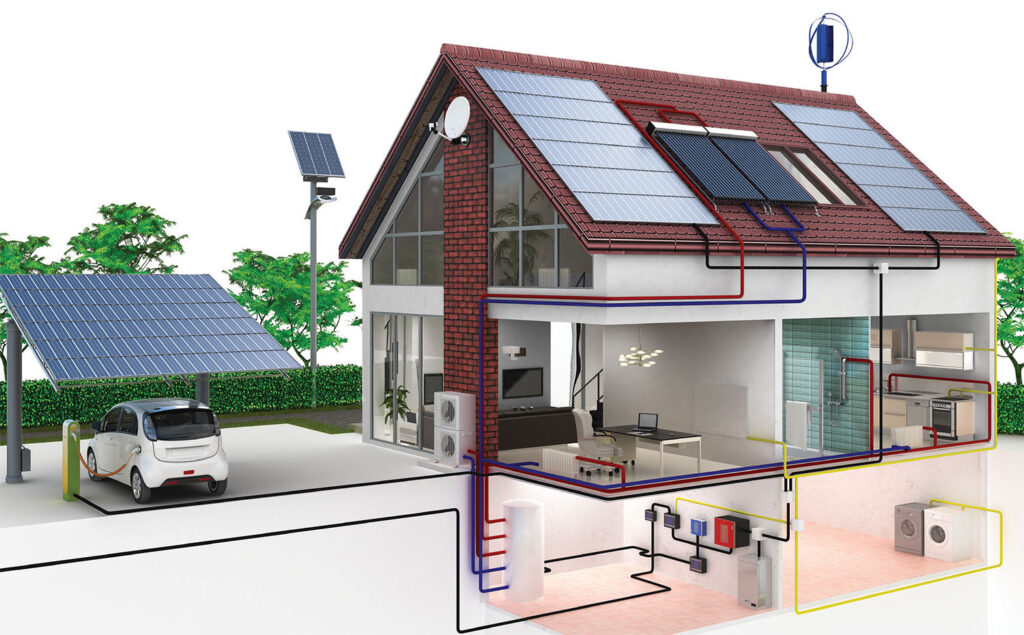A home energy storage system, also known as a residential energy storage system or home battery system, is a technology that allows homeowners to store excess electricity generated by renewable energy sources, such as solar panels or wind turbines, for later use. These systems are designed to improve energy self-sufficiency, increase energy efficiency, and provide backup power during grid outages.
- Energy Generation: Homeowners often generate electricity from renewable sources like solar panels during the day when the sun is shining or from wind turbines when it’s windy. This electricity is used to power the home’s electrical loads.
- Excess Energy: When the renewable energy system generates more electricity than the home needs at that moment, the excess energy is typically sent back to the grid (if a grid-tied system is in place) or goes unused.
- Energy Storage: Instead of sending excess energy back to the grid or wasting it, a home energy storage system stores this surplus electricity in batteries. These batteries can be lithium-ion, lead-acid, or other types, depending on the system.
- Energy Use at Night or During Outages: When the renewable energy source isn’t generating electricity, such as during nighttime or cloudy/windless periods, the stored energy in the batteries can be used to power the home’s electrical needs. This helps reduce reliance on grid-supplied electricity and can lower energy bills.
- Backup Power: In the event of a grid outage or blackout, home energy storage systems can provide backup power to critical appliances and systems in the home, such as lighting, refrigeration, and heating/cooling, depending on the system’s capacity.
Key features and benefits of home energy storage systems include:
- Energy Independence: Homeowners can become less dependent on grid electricity and reduce their reliance on fossil fuels by storing and using their renewable energy.
- Energy Cost Savings: By using stored energy during peak demand times when electricity rates are higher, homeowners can lower their utility bills.
- Grid Support: Some home battery systems can provide grid services, such as peak shaving or load balancing, which can earn homeowners incentives or compensation from utilities.
- Resilience: Home energy storage systems provide backup power during grid outages, improving a home’s resilience and ensuring essential services remain operational.
- Environmental Benefits: Using stored renewable energy reduces greenhouse gas emissions and promotes a cleaner energy ecosystem.
Home energy storage systems are becoming increasingly popular as renewable energy adoption grows, and they can be an integral part of a comprehensive home energy management strategy. The choice of a specific system depends on factors like the homeowner’s energy needs, budget, and the local energy environment.


